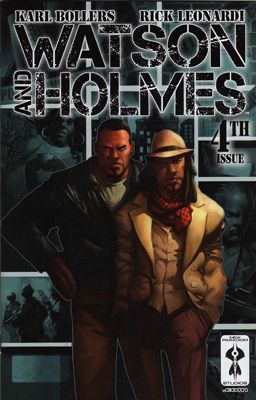A federal judge has refused to stay a Seventh Circuit decision affirming that most of the Sherlock Holmes stories have lapsed into the public domain as the estate of Arthur Conan Doyle appeals to the U.S. Supreme Court.
An attorney for the estate told Law360 the denial on Wednesday by U.S. Circuit Judge Richard A. Posner was "no surprise," adding that "the real question" is whether the high court will grant the estate's motion.
Last month the Seventh Circuit upheld a lower-court decision that the elements included in the 50 Sherlock Holmes stories published before Jan. 1, 1923, are in the public domain in the United States. It rejected the Doyle estate's rather novel argument that the great detective is a “complex” character who was effectively incomplete until the author’s final story was published in this country, leaving the entire body of work protected by copyright.
Doyle’s heirs have long insisted that publishers, television networks and film studios pay a licensing fee to use the characters and story elements. Many, including Warner Bros. and CBS, complied, but Sherlock Holmes expert Leslie Klinger refused to fork over $5,000 while assembling In the Company of Sherlock Holmes, a collection of new stories written by different authors. When the Doyle estate sent a letter to the publisher threatening to block sales of the book through Amazon, Barnes & Noble and other retailers, Klinger sued.
In the Seventh Circuit's June opinion, Posner penned a rousing endorsement of the public domain: "... extending copyright protection is a two-edged sword from the standpoint of inducing creativity, as it would reduce the incentive of subsequent authors to create derivative works (such as new versions of popular fictional characters like Holmes and Watson) by shrinking the public domain. For the longer the copyright term is, the less public-domain material there will be and so the greater will be the cost of authorship, because authors will have to obtain licenses from copyright holders for more material [...] Most copyrighted works include some, and often a great deal of, public domain material — words, phrases, data, entire sentences, quoted material, and so forth. The smaller the public domain, the more work is involved in the creation of a new work. The defendant’s proposed rule would also encourage authors to continue to write stories involving old characters in an effort to prolong copyright protection, rather than encouraging them to create stories with entirely new characters. The effect would be to discourage creativity.”
According to Law360, the estate's appeal request indicated the appeal to the Supreme Court will center on whether Klinger should've been permitted to file his declaratory judgment lawsuit before he published the Holmes collection.
Noting that the high court selects "very few cases each year," Klinger wrote Wednesday on his website, "I’m told that the chance that the SCOTUS would actually agree to hear the Estate’s case is very slim."
Doyle's 10 Holmes stories published after 1922 remain protected by copyright in the United States through 2022.


